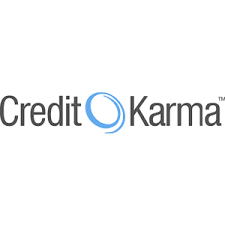I’ve been using Credit Karma to track my credit score for almost 5 years now. I logged on today and noticed a substantial drop in my credit score from two weeks ago. This struck me as really odd because I have not applied for any new cards in the past couple weeks and haven’t missed any payments. After a little more investigating I found out that Credit Karma changed their algorithm for estimating credit scores.
Here is Credit Karam’s statement on their new credit score algorithm.
Credit Karma has adopted the VantageScore 3.0 score provided by TransUnion. The VantageScore 3.0 score replaces the TransUnion New Account Score on your Credit Karma account. The VantageScore 3.0 model developed by the three major credit bureaus is designed to be more predictive and may better score people who are new to credit than other models. VantageScore is widely used in the financial industry. The makers of VantageScore report that financial institutions, 8 of the top 10 credit card issuers, and 6 of the top 10 auto lenders and all 5 of the top mortgage lenders use VantageScore.
You may see a change in your credit score because of this switch. Each credit score model has a slightly different formula for analyzing the over 200 different factors of your credit report. No credit score model is exactly the same, so your credit score with different models may vary.
Here are the details on what affects your score and how much with the new algorithm.
- Payment history (extremely influential): This factor still comes in at #1 as a predictor of risk. Late payments remain on your report for up to seven years for a reason. Creditors use your score to help determine how likely you are to pay your debt, so a history of untimely payments usually raises a red flag.
- Age and type of credit (highly influential): This factor refers to your account mix and length of credit history. The key idea is to maintain a variety of account types, like credit cards and loans, over time.
- Credit utilization (highly influential): Your utilization percentage is calculated by dividing your balances by your available credit. It’s generally recommended to keep your balances under 30 percent of your total credit limit.
- Total balances (moderately influential): This looks at the balances of both current and delinquent debt. Similar to utilization, reducing the amount of debt you owe can help improve your score.
- Recent behavior (less influential): This factor looks at how many credit accounts you’ve recently opened and the number of hard inquiries placed on your file.
- Available credit (least influential): This is the amount of credit you have available at your disposal.
I really get dinged on the Age and type of credit because my oldest account is only 5 years old, and I don’t have much of a mix of types of credit.
In the end, Credit Karma is still just an estimate for your credit score. In my case, it has become a less accurate one than it was before (compared with actual credit scores I have gotten through credit cards).
Have you checked your Credit Karma recently? Did your score estimate change significantly?




![Russia – Moscow, St. Petersburg, and Velicky Novgorod [VIDEO]](https://carolinelupini.com/wp-content/uploads/2015/03/russia-500x383.jpg)
![The Dead Sea – Don’t Miss It! [VIDEO]](https://carolinelupini.com/wp-content/uploads/2018/02/Screen-Shot-2018-03-11-at-1.44.10-PM-500x383.png)


There are some bizarre things about the way they compute scores. Credit card utilization of 0% generates a LOWER score than utilization of 1-20%. WTH?
My VantageScore is “Very Good” at 988 out of 990, but my Auto Insurance Score is “Fair” at 835 of 950. Why? This makes absolutely no sense, and leaves me wondering if I am over-paying for car insurance for no justifiable reason. Credit Karma states that “Note that your insurance score is only based off of credit report information. It doesn’t matter if you don’t own a car, have never filed an insurance claim and have a clean driving record.” So, then why on earth would my score be “Fair”. Do people with lots of credit inquires file more insurance claims??
Can you write a series of blog posts on how each of these scores are calculated, with some detail beyond the minimal information shown on CreditKarma’s website?
Gene, there are definitely a lot of things that go into the credit reporting, and unfortunately the all we know about the algorithms used is what the credit bureaus tell us. Credit Karma is not a credit buearu, but has it’s own algorithm to estimate those of the credit bureaus. I also have a much lower Auto Insurance Score, and am not sure how Credit Karma calculates that, but it is certainly something I can look into further.
I also think you may still have the old algorithm for your account because based on the new algorithm for credit utilization 0-9% is the best category, followed by 10-29%, 30-49%, 50-74%, and 75%+ or no data. So, it appears that with VantageScore 3.0 you are no longer penalized for having a utilization of 0%.
Thanks.
My VantageScore was definitely determined using the old algorithm. My partner pulled up his account, and his VantageScore was determined using the new algorithm. Can’t wait to see my new VantageScore!
Keep me posted! I’m very curious how this rollout is going to look for others!
On Credit Karma I went up 2 points.
However on Credit Sesame I dropped from 831 to 786. The only alert was owing $1400 on a card that I have at least a $5K limit. That’s most of what I owe with collective $200K in available credit. I’m not sure of exact card limit because US Bank is having a problem with their web site and limits and available credit is not showing.
Thanks for the datapoint! I don’t really use credit sesame, but I just logged in an my credit score is about where I think it should be on there. You can tell if your Credit Karma is using the new algorithm based on what credit utilization percentages it is using. If it is using 1-20% as the best then it is the old algorithm (2.0) and if it is using 0-9% as the best it is the new algorithm (3.0).
I show 0% as being a C grade rather than an A, so I guess I am still on old on Credit Karma.
Hello!
I’m the Community Manager at Credit Karma and thought I might be able to shed some more light on this change. We’re slowly rolling out this new format, so not all members will have had a chance to see whether or not their score has changed. The VantageScore is designed to be more consistent between bureaus. If your credit report data is identical between credit bureaus, your VantageScore will be too!
Here at Credit Karma, we don’t actually calculate any score. The scores are always calculated by TransUnion (not estimates), using their credit report data. We purchase these scores on behalf of the consumer because we believe everyone should have access to their own credit data. As you’ve noted, the bureaus do have hundreds of different formulas and scores can vary widely from one formula to the next. What we like about the VantageScore 3.0 is the transparency: it’s much more clear how different variables impact your credit, and how strongly.
Thanks for your thoughtful post. We’re always grateful for any feedback. Please stay tuned, because we have several new features debuting shortly that we think you’ll really enjoy!
Thank you for providing some additional clarification Kayleigh!
Mine went up by 41 points. Vast difference between trans and vantage. Oh, btw. I like the old format better. If you have to change scores, fine. But the old layout was much better to see at a glance.
Thanks for another datapoint!
Most of these credit sites are pretty useless when it comes to predicting your actual (FICO) credit score. And even then, there are a ton of different models. Apparently most credit lenders use the FICO 8 model, which is available publicly on myfico.com for all 3 credit bureaus. Each bureau has their own formula for calculating your FICO score. Most mortgage lenders go by FICO04 model, of which only Equifax is available publicly. Unfortunately you usually have to pay to have access to these scores. Barclay give you a free FICO 8 Transunion score. I believe Discover also uses Transunion FICO 8 score. I know there are others, but I can’t seem to find the list for what models they use.
As for the CreditKarma score, I think mine went up 10 points today. But looking at the site, it appears it is still on the old model so you must be extra special. But even then, that is still 10-39 points lower than my actual FICO 8 scores from all three bureaus. (READ: My “real” credit scores even vary by 29 points across all three bureaus.)
And to follow up on that, I just checked my Quizzle score, which apparently uses VantageScore 3.0, and it is 5 points lower than my highest FICO 8 score (Equifax).
When will I see my new vantage 3.0 score? My husband got his 2 weeks ago? Do Lenders Use This score? We are going for a mortgage in 3 weeks.
Thanks
Tanya
I’m not sure when the rollout will.be complete, but no, lenders do not use that score. They primarily use your FICO score which you can get for free if you have a discover card or the US airways card.
Credit Karma missing a point here, if vantagescore 3.0 is better and close to other algorithms, why there is drastic change in majority of customers?
If it is really used by most of the lenders as they claim, no one will have excellent credit.. I think its real Vantagescore 3.0 is considering 0 balance is worst than having some balance less than 10%. since my most cards are with 0 balance on it and couple hahve few hundreds and my ceredit score decreased by 90 points.
Point is simple.. if larger community is effected badly.. it should not be considered as good option. this is world wide accepted theory. I think with new vantagescore 3.0 people with no credit or lower credit benified but it is worst for people with excellent credit with FICO.
Hi Hyderabad,
To say that the “majority” of members experienced a drastic change is incorrect. It’s easy to see a vocal minority and assume it’s a majority, but that is not the case. Members who did not see their score change, or who saw their score increase, are less likely to post publicly.
Just to give you another data point, my CK algorithm switched to VantageScore 3.0 today. Score dropped by 1 point.
Thanks for the data point!
My new ck score dropped 53 pts my credit sesame increased 7 pts.